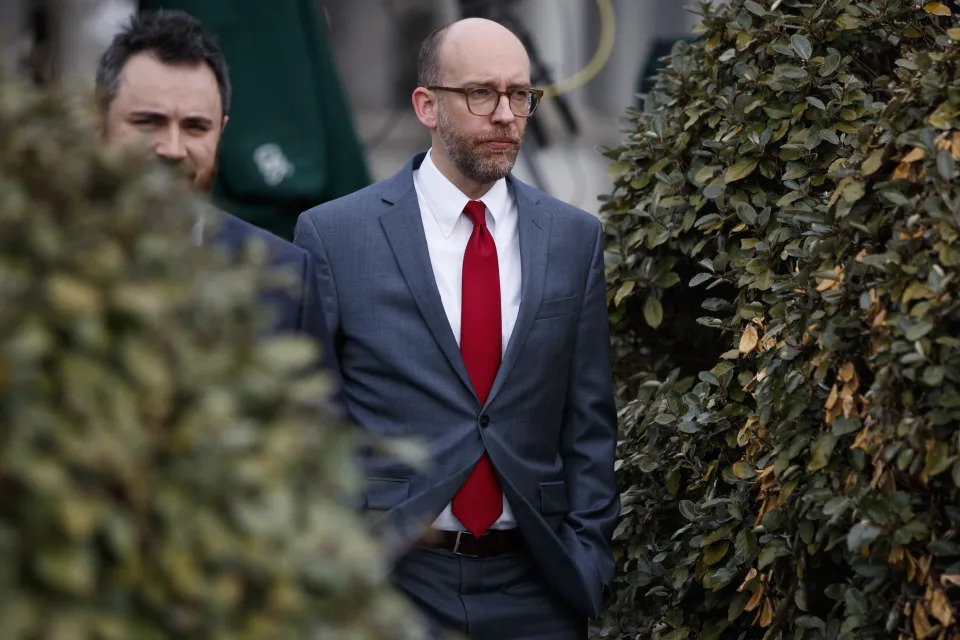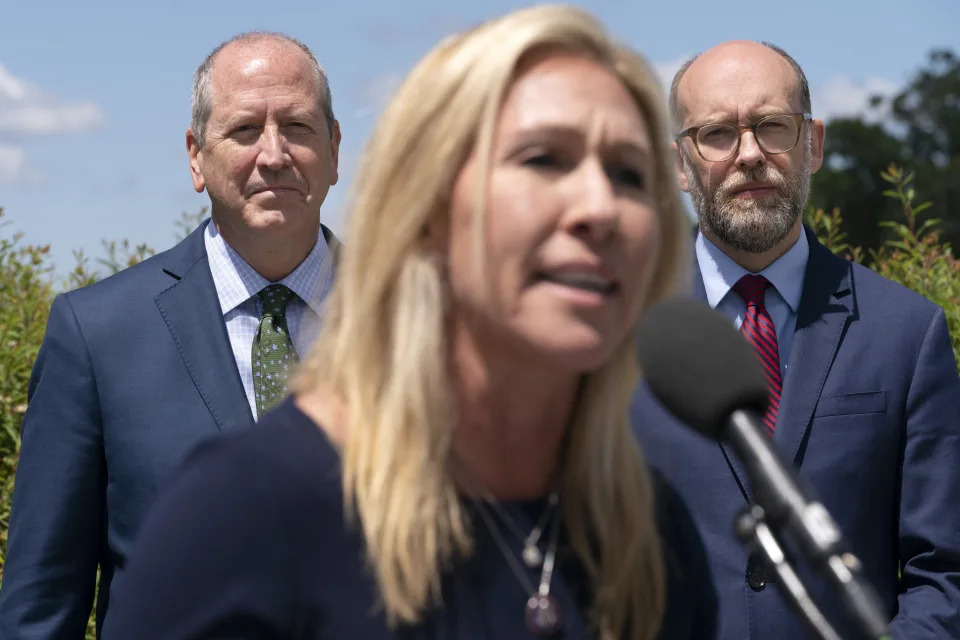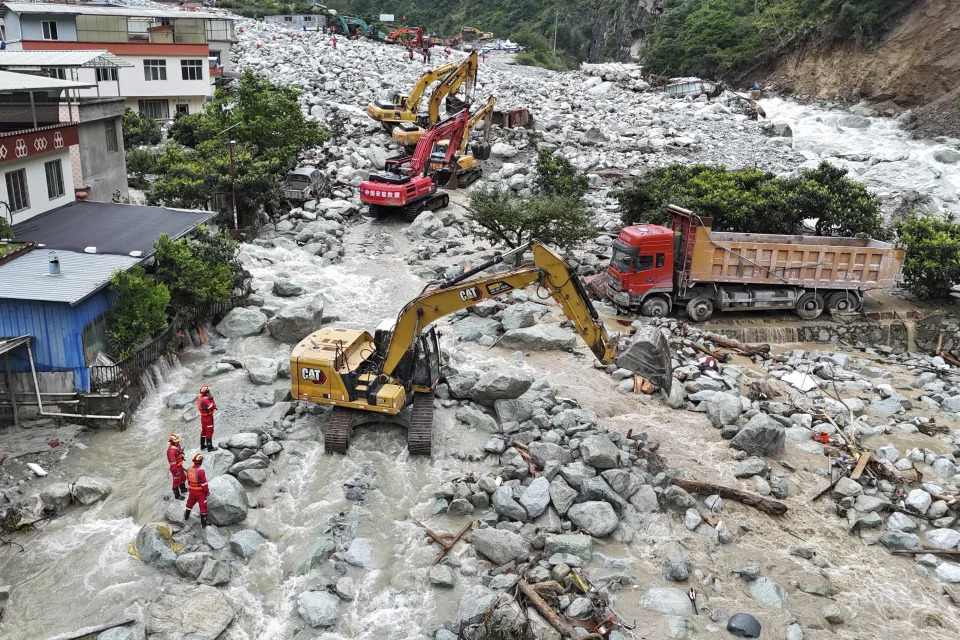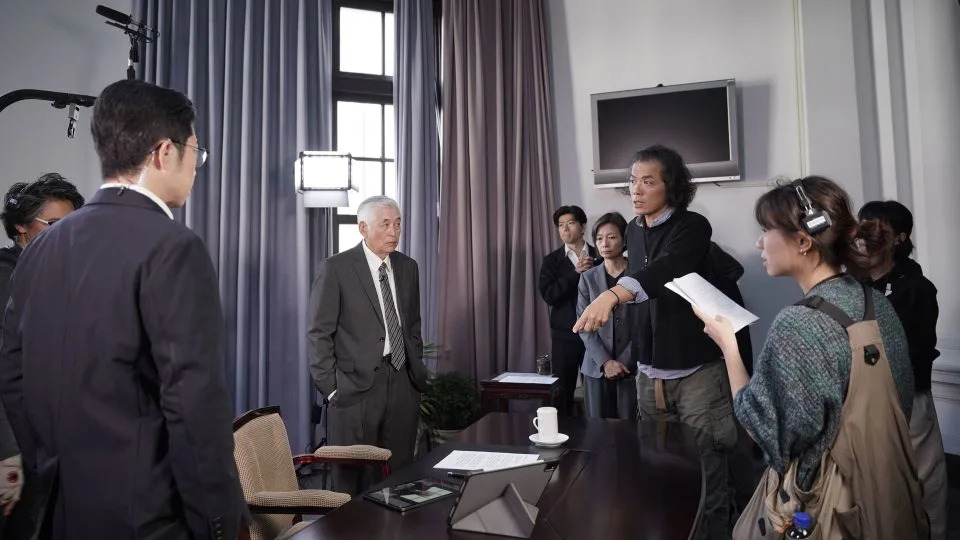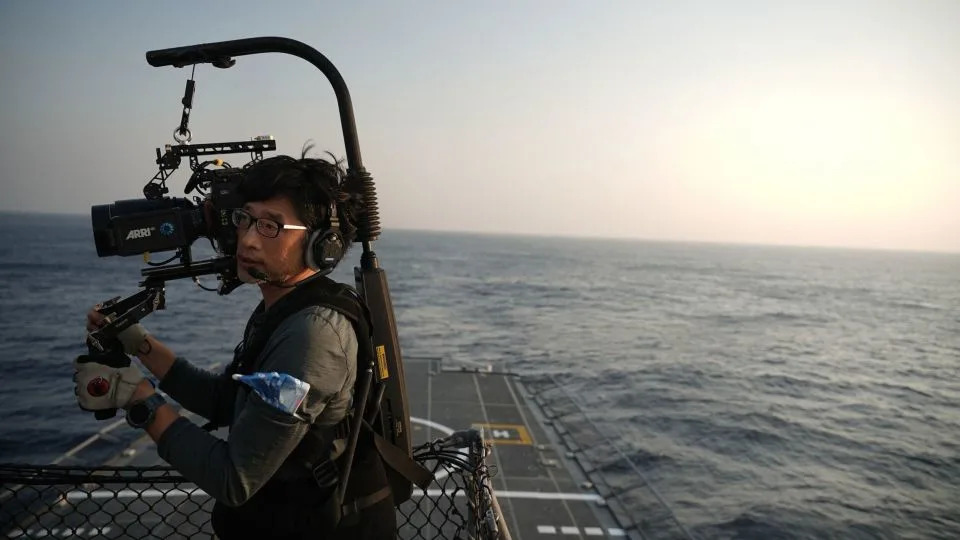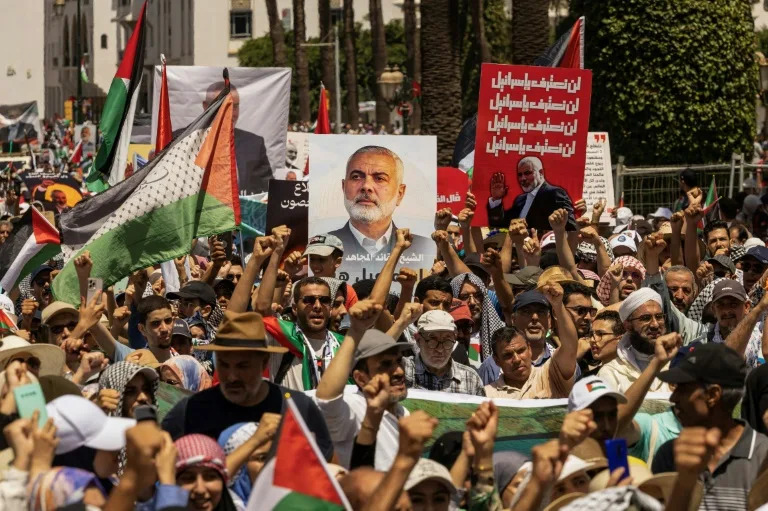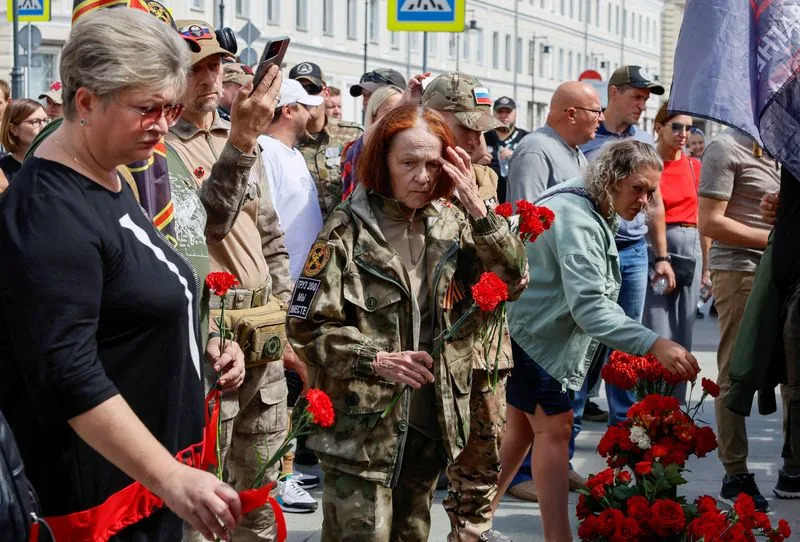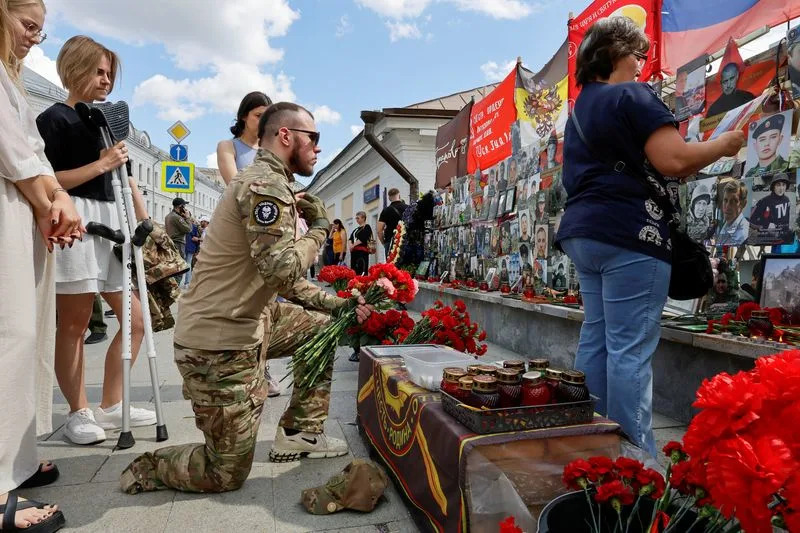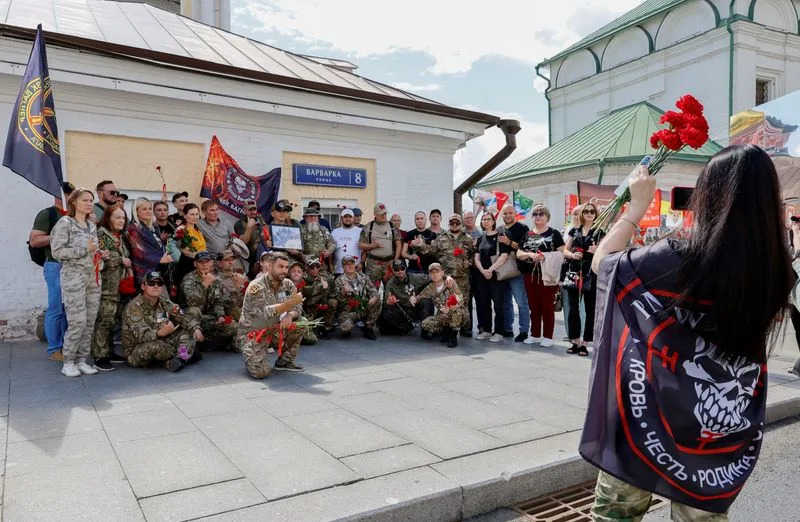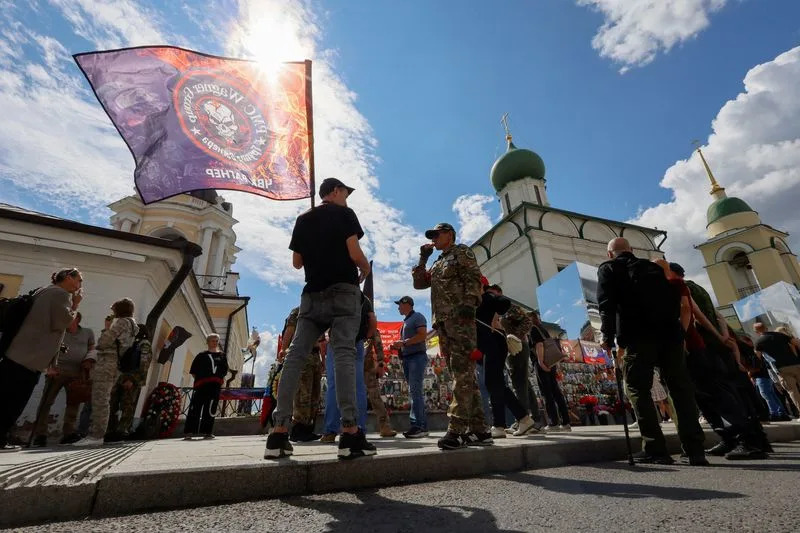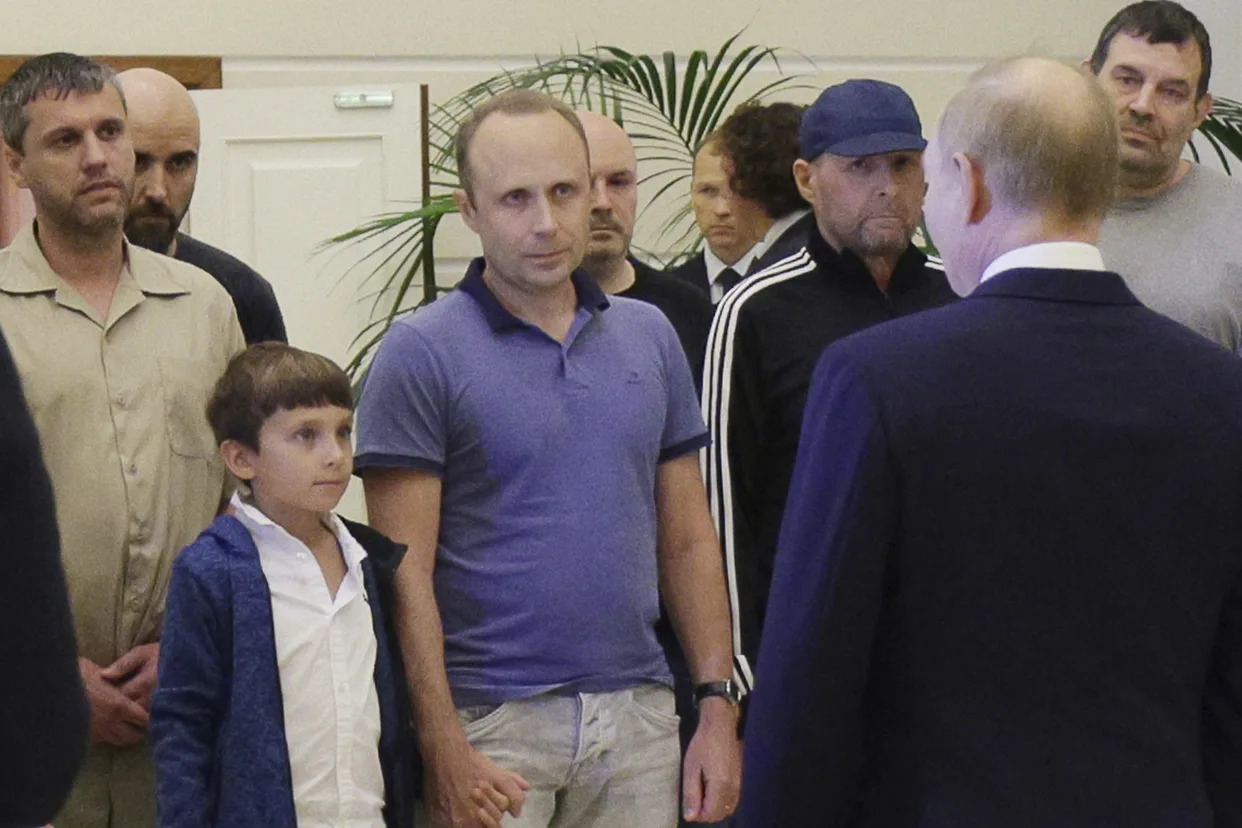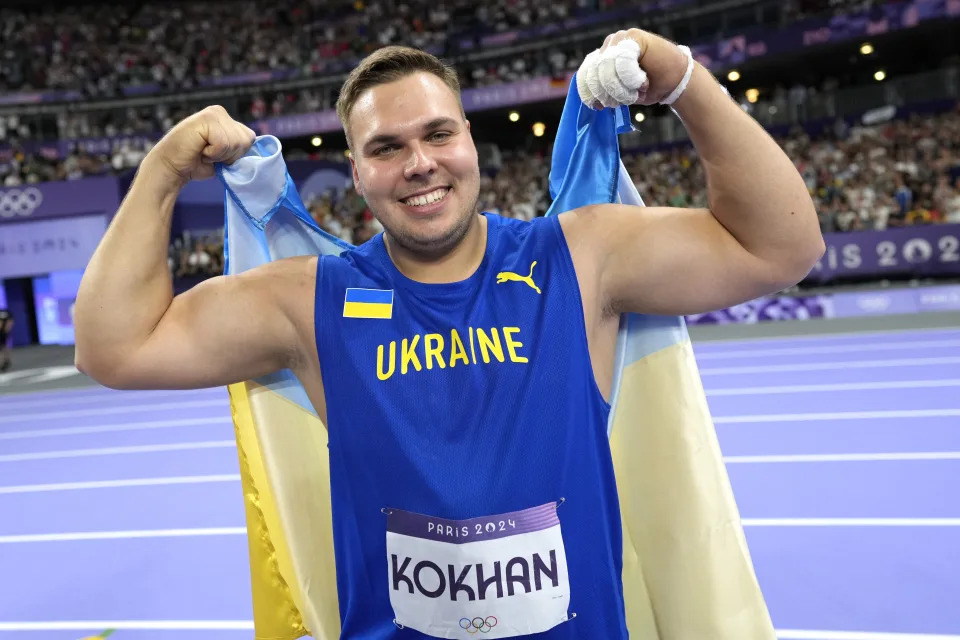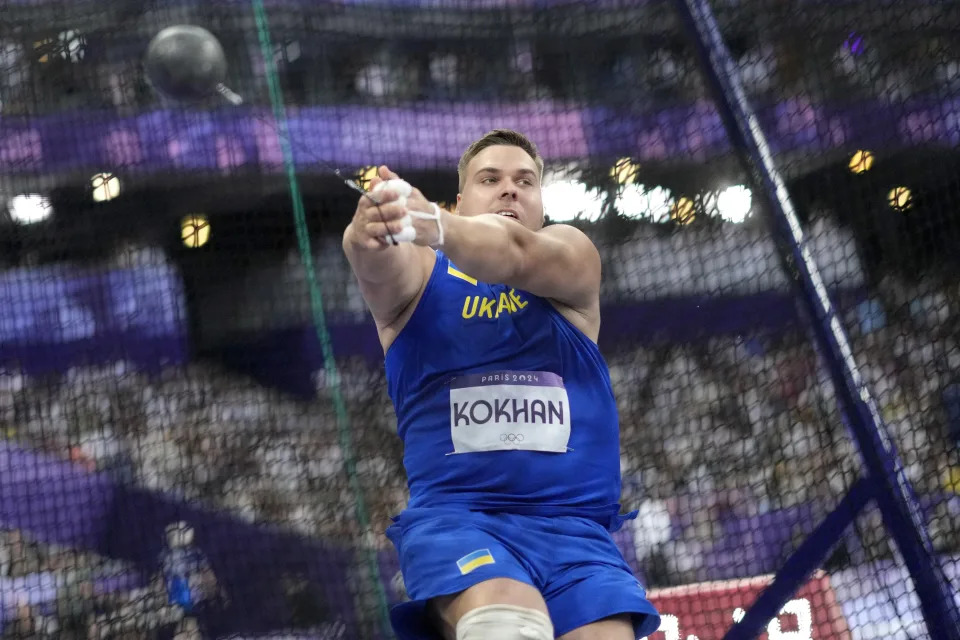COUNTERING THE HEGEMON IN AFRIKA
China's drills with Tanzania and Mozambique show 'blended approach' to military diplomacySouth China Morning Post
Sun, August 4, 2024
Troops have started tactical training in a trilateral counterterrorism drill between China, Tanzania and Mozambique, as Beijing steps up its military diplomacy with African countries.
The People's Liberation Army (PLA) conducted battlefield surveys and set up command posts ahead of the start of the "Peace Unity-2024" military exercise, which is set to run until mid-August.
They also held some tactical training using armoured fighting vehicles and self-propelled assault guns at the Tanzanian military's Chinese-built comprehensive training centre in Mapinga, Bagamoyo district, in the days leading up to the official start of the joint drill on July 29.
Do you have questions about the biggest topics and trends from around the world? Get the answers with SCMP Knowledge, our new platform of curated content with explainers, FAQs, analyses and infographics brought to you by our award-winning team.
Beijing has sent ground units from the PLA Central Theatre Command as well as a naval flotilla from the Southern Theatre Command to take part in the East African exercise.
The joint drill will have a range of benefits for both China and the African countries taking part, analysts have said, not just in military training but also in strengthening political ties.
Paul Nantulya, a China specialist at the National Defence University's Africa Centre for Strategic Studies in Washington, said the exercise would entail land and sea-based counterterrorism operations, boarding and seizure, anti-piracy patrols and joint maritime patrols.
"It is what I call a 'blended approach' to military-to-military partnership," Nantulya said.
On the non-military side, he said the Chinese contingent would host cultural and deck receptions, as well as vessel open days for the public, as part of China's military and cultural diplomacy.
"This is part of what I term 'blended military engagement' that mixes military, defence, political, diplomatic, cultural and commercial engagement," Nantulya said.
The Chinese navy contingent taking part in the drills are from the 45th naval escort force, and include the guided missile destroyer Hefei, plus the Qilianshan and Wuzhishan - both amphibious dock landing ships.
Nine operations will be practised at sea, according to China's defence ministry, including port joint defence, counterterrorism tactics, boarding and seizure operations, visit board search and seizure, anti-terrorism and anti-piracy, and joint maritime patrols.
The vessels arrived in Tanzania shortly after Chinese naval hospital ship Peace Ark finished providing a week of medical services to the nation during its Mission Harmony-2024.
In March, China's 45th naval fleet, including guided-missile destroyer Urumqi, missile frigate Linyi and comprehensive replenishment vessel Dongpinghu, also visited Tanzania and Mozambique.
It is all part of Beijing's bid to strengthen and entrench political, commercial, ideological, cultural and wider defence ties, as well as increase China's global prestige among African audiences, Nantulya said.
China also hopes to achieve interoperability with select African militaries, showcase and advertise its military assets to secure more customers, and test and field new equipment and doctrine, he added.
African countries benefit too. They enhance their exposure and diversify their foreign defence ties, Nantulya said. They also get professional military training, secure alternative sources for weapons and strengthen political ties.
China had been increasing its military exercises with African countries before the Covid pandemic hit, said David Shinn, a China-Africa specialist and professor at George Washington University's Elliott School of International Affairs. But the global health crisis put a stop to them.
"The PLA is now resuming them, but apparently focusing on counterterrorism," Shinn said.
Theoretically, Shinn said any African military exercise with a more advanced army is a positive development. In this case, he said the key to success would be the relevance of the exercise to the particular terrorist challenges in Mozambique and Tanzania.
Mozambique has been battling Islamic State-backed insurgents in its Cabo Delgado region on the Tanzania border. The insurgency has claimed more than 4,000 lives and displaced thousands more since 2017, and affected key investments for gas production.
Tanzania has emerged as a key destination for China's military cooperation, with the current exercise their fourth joint drill since 2014.
"China has a long-standing relationship, particularly with the Tanzanian People's Defence Force, and holds periodic exercises with it," Shinn said.

PLA troops assemble for the joint military drill with Tanzania and Mozambique. Photo: Weibo alt=PLA troops assemble for the joint military drill with Tanzania and Mozambique. Photo: Weibo>
Other possible African candidates for counterterrorist exercises with China, he said, were Somalia - though the US and Turkish militaries were already engaged there - and the Sahel countries, those south of the Sahara, where Russia's Wagner Group and Africa Corps were already engaged.
Shinn said Nigeria could perhaps be the location of China's next exercise. Last year, three PLA warships made port calls in the country, where China has invested heavily in the construction of railway lines as well as the Lekki Deep Sea Port.
Zhou Yuyuan, deputy director at the Centre for West Asian and African Studies, Shanghai Institutes for International Studies, said the counterterrorism theme for the current joint military drill showed the Chinese defence ministry's commitment to it.
"But overall, this joint exercise remains a regular military exchange or military diplomacy," Zhou said.
It will also be a "warm-up for this year's FOCAC summit", Zhou said, referring to the Forum on China-Africa Cooperation event to be held in Beijing next month.
He added that the three Chinese warships taking part in the exercise were the main battleships of the PLA Navy and could provide important practice for future maritime security cooperation between African countries and China.
Francois Vrey, a professor emeritus of military science and a research coordinator at the Security Institute for Governance and Leadership in Africa at Stellenbosch University, South Africa, noted that Tanzania and Mozambique both border the Western Indian Ocean, which ties into China's Maritime Silk Road and gives all three countries a common interest in stable seas in the region.
The anti-terrorism theme for the drill was not unexpected, he said, given that China had a vested interest in the offshore gas fields off the coast of northern Mozambique, with the Tanzanian side also entering the fold.
"China thus has an interest in landward and maritime stability in and off these two countries," Vrey said. "This exercise is military diplomacy - and what better than bringing your 'grey hulls' into the picture?"
Vrey said Mozambique showed a Western military footprint - largely through the West's training support to help it counter the Cabo Delgado insurgency.
"I think China is clever in its use of its navy as it is more impressive, albeit temporary. What one must watch is when Chinese army elements arrive, although this element is largely stationed in Djibouti and the landward part of the exercise can be navy-heavy or perhaps involve Chinese marines," Vrey said.
China currently has thousands of military personnel stationed at its first overseas naval base in Djibouti, which officially opened in 2017, with an aim to protect Chinese investments and citizens in Africa.
Sun, August 4, 2024
Troops have started tactical training in a trilateral counterterrorism drill between China, Tanzania and Mozambique, as Beijing steps up its military diplomacy with African countries.
The People's Liberation Army (PLA) conducted battlefield surveys and set up command posts ahead of the start of the "Peace Unity-2024" military exercise, which is set to run until mid-August.
They also held some tactical training using armoured fighting vehicles and self-propelled assault guns at the Tanzanian military's Chinese-built comprehensive training centre in Mapinga, Bagamoyo district, in the days leading up to the official start of the joint drill on July 29.
Do you have questions about the biggest topics and trends from around the world? Get the answers with SCMP Knowledge, our new platform of curated content with explainers, FAQs, analyses and infographics brought to you by our award-winning team.
Beijing has sent ground units from the PLA Central Theatre Command as well as a naval flotilla from the Southern Theatre Command to take part in the East African exercise.
The joint drill will have a range of benefits for both China and the African countries taking part, analysts have said, not just in military training but also in strengthening political ties.
Paul Nantulya, a China specialist at the National Defence University's Africa Centre for Strategic Studies in Washington, said the exercise would entail land and sea-based counterterrorism operations, boarding and seizure, anti-piracy patrols and joint maritime patrols.
"It is what I call a 'blended approach' to military-to-military partnership," Nantulya said.
On the non-military side, he said the Chinese contingent would host cultural and deck receptions, as well as vessel open days for the public, as part of China's military and cultural diplomacy.
"This is part of what I term 'blended military engagement' that mixes military, defence, political, diplomatic, cultural and commercial engagement," Nantulya said.
The Chinese navy contingent taking part in the drills are from the 45th naval escort force, and include the guided missile destroyer Hefei, plus the Qilianshan and Wuzhishan - both amphibious dock landing ships.
Nine operations will be practised at sea, according to China's defence ministry, including port joint defence, counterterrorism tactics, boarding and seizure operations, visit board search and seizure, anti-terrorism and anti-piracy, and joint maritime patrols.
The vessels arrived in Tanzania shortly after Chinese naval hospital ship Peace Ark finished providing a week of medical services to the nation during its Mission Harmony-2024.
In March, China's 45th naval fleet, including guided-missile destroyer Urumqi, missile frigate Linyi and comprehensive replenishment vessel Dongpinghu, also visited Tanzania and Mozambique.
It is all part of Beijing's bid to strengthen and entrench political, commercial, ideological, cultural and wider defence ties, as well as increase China's global prestige among African audiences, Nantulya said.
China also hopes to achieve interoperability with select African militaries, showcase and advertise its military assets to secure more customers, and test and field new equipment and doctrine, he added.
African countries benefit too. They enhance their exposure and diversify their foreign defence ties, Nantulya said. They also get professional military training, secure alternative sources for weapons and strengthen political ties.
China had been increasing its military exercises with African countries before the Covid pandemic hit, said David Shinn, a China-Africa specialist and professor at George Washington University's Elliott School of International Affairs. But the global health crisis put a stop to them.
"The PLA is now resuming them, but apparently focusing on counterterrorism," Shinn said.
Theoretically, Shinn said any African military exercise with a more advanced army is a positive development. In this case, he said the key to success would be the relevance of the exercise to the particular terrorist challenges in Mozambique and Tanzania.
Mozambique has been battling Islamic State-backed insurgents in its Cabo Delgado region on the Tanzania border. The insurgency has claimed more than 4,000 lives and displaced thousands more since 2017, and affected key investments for gas production.
Tanzania has emerged as a key destination for China's military cooperation, with the current exercise their fourth joint drill since 2014.
"China has a long-standing relationship, particularly with the Tanzanian People's Defence Force, and holds periodic exercises with it," Shinn said.

PLA troops assemble for the joint military drill with Tanzania and Mozambique. Photo: Weibo alt=PLA troops assemble for the joint military drill with Tanzania and Mozambique. Photo: Weibo>
Other possible African candidates for counterterrorist exercises with China, he said, were Somalia - though the US and Turkish militaries were already engaged there - and the Sahel countries, those south of the Sahara, where Russia's Wagner Group and Africa Corps were already engaged.
Shinn said Nigeria could perhaps be the location of China's next exercise. Last year, three PLA warships made port calls in the country, where China has invested heavily in the construction of railway lines as well as the Lekki Deep Sea Port.
Zhou Yuyuan, deputy director at the Centre for West Asian and African Studies, Shanghai Institutes for International Studies, said the counterterrorism theme for the current joint military drill showed the Chinese defence ministry's commitment to it.
"But overall, this joint exercise remains a regular military exchange or military diplomacy," Zhou said.
It will also be a "warm-up for this year's FOCAC summit", Zhou said, referring to the Forum on China-Africa Cooperation event to be held in Beijing next month.
He added that the three Chinese warships taking part in the exercise were the main battleships of the PLA Navy and could provide important practice for future maritime security cooperation between African countries and China.
Francois Vrey, a professor emeritus of military science and a research coordinator at the Security Institute for Governance and Leadership in Africa at Stellenbosch University, South Africa, noted that Tanzania and Mozambique both border the Western Indian Ocean, which ties into China's Maritime Silk Road and gives all three countries a common interest in stable seas in the region.
The anti-terrorism theme for the drill was not unexpected, he said, given that China had a vested interest in the offshore gas fields off the coast of northern Mozambique, with the Tanzanian side also entering the fold.
"China thus has an interest in landward and maritime stability in and off these two countries," Vrey said. "This exercise is military diplomacy - and what better than bringing your 'grey hulls' into the picture?"
Vrey said Mozambique showed a Western military footprint - largely through the West's training support to help it counter the Cabo Delgado insurgency.
"I think China is clever in its use of its navy as it is more impressive, albeit temporary. What one must watch is when Chinese army elements arrive, although this element is largely stationed in Djibouti and the landward part of the exercise can be navy-heavy or perhaps involve Chinese marines," Vrey said.
China currently has thousands of military personnel stationed at its first overseas naval base in Djibouti, which officially opened in 2017, with an aim to protect Chinese investments and citizens in Africa.
Copyright (c) 2024. South China Morning Post Publishers Ltd. All rights reserved.







